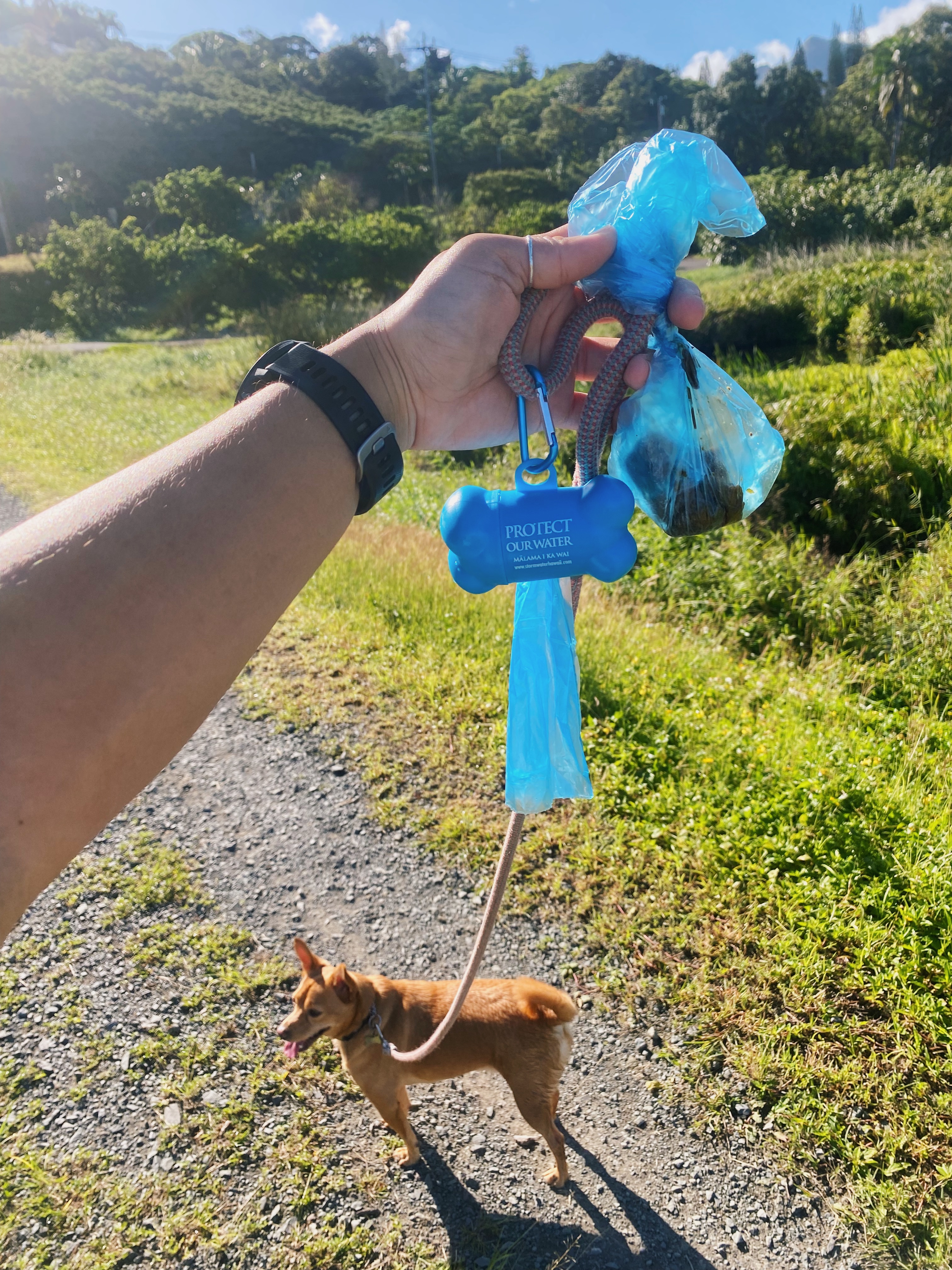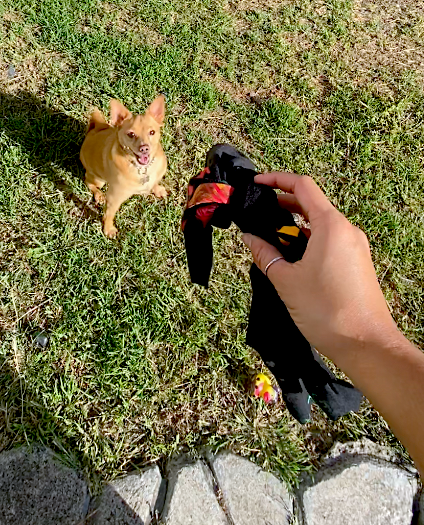While pets are amazing companions, they can produce substantial waste that negatively impacts the environment. Sources of waste include feces, plastic food bags, and the constant flow of new toys—just to name a few. No, this doesn’t mean we can’t have any furry friends; instead, we need to know how to care for our pets in a way that is good for them and our environment. Here are a few ways you can be an eco-friendly pet owner!
 Pick up your pet’s poop. When it rains, pet waste can be carried from yards and streets into nearby bodies of water or our storm drain system. Pet waste contains bacteria such as Salmonella, E. Coli, and Campylobacter. In large amounts, these bacteria can cause illness in plants, animals and humans, so picking up feces on walks or in yards is important to ensure the waste doesn’t spread. Feces also contain nutrients that promote algae blooms (an overgrowth of aquatic plants),depleting the oxygen and space other organisms need to survive.
Pick up your pet’s poop. When it rains, pet waste can be carried from yards and streets into nearby bodies of water or our storm drain system. Pet waste contains bacteria such as Salmonella, E. Coli, and Campylobacter. In large amounts, these bacteria can cause illness in plants, animals and humans, so picking up feces on walks or in yards is important to ensure the waste doesn’t spread. Feces also contain nutrients that promote algae blooms (an overgrowth of aquatic plants),depleting the oxygen and space other organisms need to survive.
Use compostable bags. Going to the bathroom is inevitable, and someone needs to clean it up! When picking up your pet’s waste, consider using a compostable bag. Thankfully, with many sustainable options now available, it’s easy to avoid plastic! Read labels to ensure the bags you choose are eco-friendly.
 Make toys using recycled materials. Dogs and cats love their toys! Try making your own with fabric from your old t-shirts or canvas bags. Take strips of fabric and tie them together for a classic tug toy. Cut two circles out of thicker fabric and sew them together to make a frisbee. The possibilities are endless!
Make toys using recycled materials. Dogs and cats love their toys! Try making your own with fabric from your old t-shirts or canvas bags. Take strips of fabric and tie them together for a classic tug toy. Cut two circles out of thicker fabric and sew them together to make a frisbee. The possibilities are endless!
Don’t let your pet roam unsupervised. When a pet is unsupervised outdoors, it’s difficult to know exactly where they go and what they do. When you aren’t watching, they may be going to the bathroom in different places, digging holes where they shouldn’t, or coming into contact with other animals. Supervising your pet gives you the most control over what they do to keep them and others safe while ensuring nothing happens that would put the environment at risk.
Sources: Clean Water Honolulu
